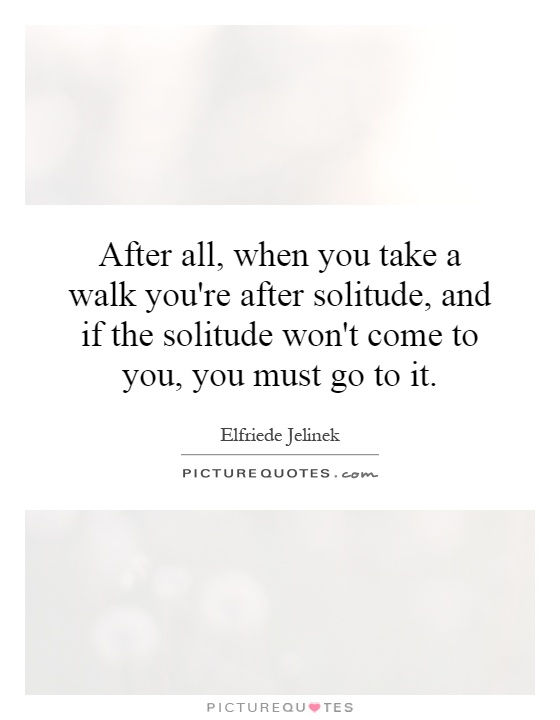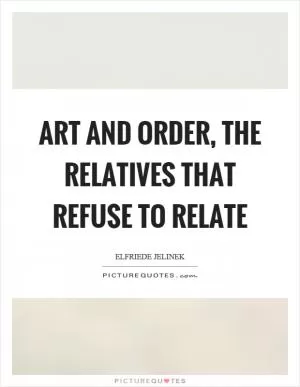After all, when you take a walk you're after solitude, and if the solitude won't come to you, you must go to it

After all, when you take a walk you're after solitude, and if the solitude won't come to you, you must go to it
Elfriede Jelinek, the Austrian playwright and novelist, is known for her provocative and challenging works that often explore themes of power, gender, and society. In her writing, Jelinek frequently delves into the complexities of human relationships and the ways in which individuals navigate the world around them. One of the recurring motifs in Jelinek's work is the idea of solitude and the search for inner peace amidst the chaos of modern life.The quote, "After all, when you take a walk you're after solitude, and if the solitude won't come to you, you must go to it," encapsulates this theme of seeking solitude in order to find a sense of peace and clarity. In Jelinek's works, her characters often grapple with feelings of isolation and alienation, struggling to find a sense of belonging in a world that can be harsh and unforgiving. The act of taking a walk, of physically removing oneself from the noise and distractions of everyday life, becomes a metaphor for the search for inner peace and self-discovery.
Jelinek's characters are often complex and multifaceted, reflecting the contradictions and conflicts that exist within all of us. They are torn between their desire for connection and their need for solitude, between their longing for intimacy and their fear of vulnerability. In Jelinek's world, solitude is not just a physical state of being alone, but a psychological and emotional state of detachment from the expectations and demands of society.
The act of taking a walk in Jelinek's work becomes a means of reclaiming agency and autonomy in a world that can be oppressive and stifling. It is a way of asserting one's independence and asserting one's right to exist on one's own terms. In a society that often values conformity and obedience, the act of seeking solitude becomes a radical act of resistance, a way of asserting one's individuality and asserting one's right to be different.
Ultimately, Jelinek's exploration of solitude and the search for inner peace speaks to the universal human experience of longing for connection and understanding in a world that can be chaotic and unpredictable. In her work, she reminds us that true solitude is not about being alone, but about finding a sense of peace and clarity within ourselves, no matter where we are or who we are with.












 Friendship Quotes
Friendship Quotes Love Quotes
Love Quotes Life Quotes
Life Quotes Funny Quotes
Funny Quotes Motivational Quotes
Motivational Quotes Inspirational Quotes
Inspirational Quotes